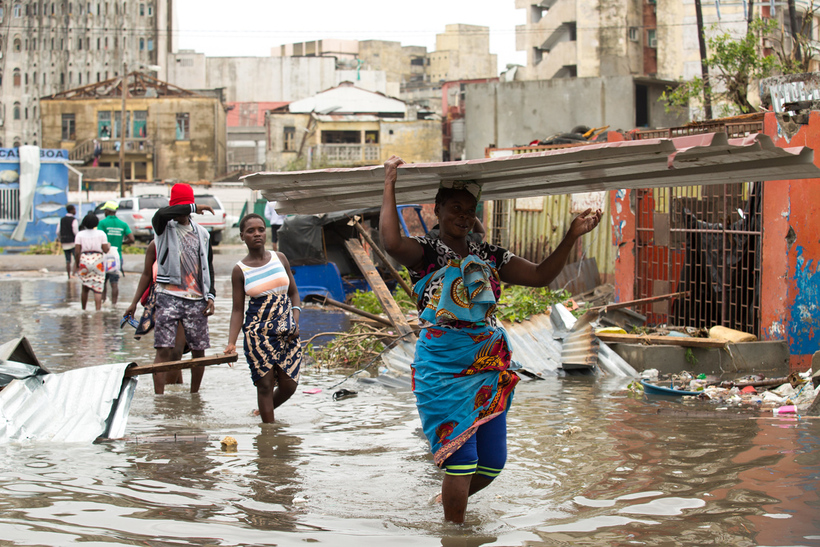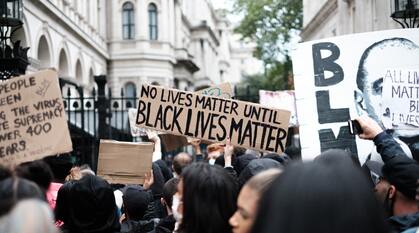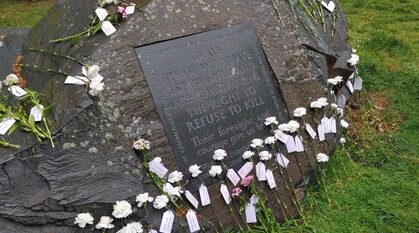Why we’re calling for polluters to pay for the damage they cause
Olivia Hanks explains why finance for loss and damage needs to be a key part of COP26 negotiations.

We all know the impacts of the climate crisis are getting worse. With wildfires, catastrophic floods and the first famine attributed solely to climate change, 2021 has been a terrifying parade of fossil-fuelled disasters. But what happens to the people on the receiving end of this loss and damage?
Unequal recoveries
A survivor of July's floods in Germany, which killed more than 180 people, may have lost their home and belongings – but they will have been provided with food and clean water. And thanks to the 20-30 billion euros earmarked for the recovery by the German government, they can expect their region's schools, railways and hospitals to be rebuilt.
For people in much of the world, the outlook is bleaker. In 2019, the impact of cyclones Idai and Kenneth left hundreds of thousands of people homeless in Mozambique, and pushed the country's debts further out of control after aid appeals raised only half their target.
Around 100,000 people were still waiting to be resettled when another cyclone struck in January this year, wiping out much of the rebuilding effort. The growing frequency of extreme weather events combined with poor infrastructure and crippling debts, as well as Covid-19, means Mozambicans are living in a continual emergency.
A key issue at COP
The Paris Agreement, negotiated at COP21 in 2015, recognises loss and damage as the third pillar of climate action, alongside mitigation (avoiding climate change by cutting emissions) and adaptation. Yet six years on, not a single penny has been found to address loss and damage directly – and there is still no agreement on who should pay.
The issue is a significant sticking point in the COP negotiations. Rich countries generally don't want to talk about loss and damage. They don't want to pay for it and they fear it will open up conversations about liability for climate breakdown.
Meanwhile, the countries most vulnerable to climate breakdown say the failure to address loss and damage threatens the whole COP process.
Making polluters pay
The moral case is clear: fossil fuel companies and others who profit from destruction owe a vast debt to the communities whose farmland is turning to desert or whose homes are disappearing under the waves. Paying for loss and damage is not charity or aid – it is partial compensation for a monumental wrong that cannot be undone. There can be no climate justice until this wrong is addressed.
Quakers in Britain have been working with other faith groups, charities and campaigners to get the issue of loss and damage on to the UK political agenda. Together with countries most vulnerable to climate change, we have made it impossible for the UK government to ignore.
Loss and damage was on the agenda for a major pre-COP ministerial meeting in July, and we are hearing more mentions of it from COP26 President Alok Sharma. But there is still no progress on finance.
Raising awareness
This Thursday 23 September is the first ever Loss and Damage Awareness Day. With just a few weeks to go until COP26, we need as many people as possible talking about loss and damage – and we need to make it clear that it's polluters who must pay.
We're asking the UK as COP President to ensure loss and damage is discussed at COP26 and we're calling on Boris Johnson to support the establishment of an international loss and damage fund. Our new coalition campaign, Make Polluters Pay, calls for a tax on fossil fuel extraction to help fund this.
It's clear that to avert further climate breakdown, we must rapidly phase out fossil fuels, invest in renewable energy and tackle wasteful overconsumption. But for some communities it's already too late to save their lands and livelihoods. We must stand in solidarity with them and support their calls for compensation as they try to rebuild their lives. When enough of us stand together, we will usher in a new era of climate justice.
Five ways to take action on loss and damage
- Sign our petition for an international loss and damage fund.
- Use social media to show support for an international loss and damage fund on 23 September, using the hashtags #LossAndDamage #MakePollutersPay #TodayNotTomorrow.
- Hold a vigil for loss and damage in the run-up to COP26.
- Start a conversation with friends or family – we're working on a guide to help with this.
- Watch and share this video on loss and damage:


